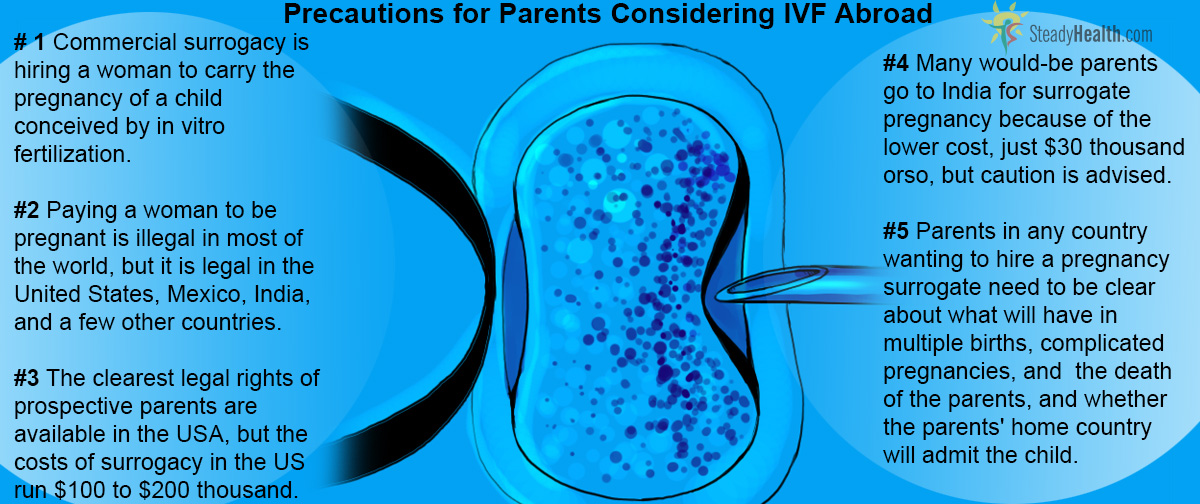Table of Contents
Padma and Sanjay flew all the way from from London to India to meet their new son for the very first time. Nine months earlier, the ecstatic couple had flown to a commercial surrogacy clinic to donate their eggs and sperm to conceive a child, which was then implanted into a woman paid to carry their child to term. Moments after the child was delivered by cesarean section, their biological baby was in their arms. The woman who carried the child to term was crying in the delivery room, but she was happy to know she would soon be paid the equivalent of about $9,000, which was an unimaginable sum for most families living in India, out of about the $30,000 Padma and Sanjay paid to the comercial surrogacy clinic.
Paulo and João, a gay couple living in Lisbon, flew to Los Angeles to meet their new baby son, just like Padma and Sanjay. Nine months earlier, they too had traveled long distances to the United States to donate sperm to fertilize an egg purchased from an American woman of Portuguese heritage, not knowing who would actually become the baby's biological father. Paulo and João paid altogether about $200,000 for the surrogacy and the procedures needed to sustain the pregnancy, and about $50,000 going to the woman who was pregnant for them.
Commercial surrogacy can be a great way to welcome a special someone into your home if you and your partner can't conceive a child together, but it can also come with unanticipated problems. Now legal in a few states in America, in Mexico, and in India, commercial surrogacy is becoming more and more popular. Before eager parents start booking a plane, however, you and your partner will need to deeply consider all of the potential perils a commercial surrogacy might have.
What Is Commercial Surrogacy?
Millions of heterosexual couples cannot have children because the female partner has some insurmountable problem in ovulation, conception, or carrying a child to term. Millions of male-male homosexual couples face a more obvious barrier to parenthood. For the past thirty years, however, modern technology has made "test tube babies" a reality, although at a huge financial burden to the would-be parents. Despite the availability of the technology, many countries, including Germany and much of the European Union, ban surrogate pregnancies altogether. The United Kingdom and Canada permit "altruistic surrogacy", a woman's becoming pregnant to support the wishes of another couple, usually people she knows, for free, but nine months of pregnancy is a lot to ask from a friend, much less a stranger.
See Also: Becoming A Surrogate Mother: Issues To Consider
Questions To Ask About Surrogacy In The USA
American medical care, if you have money, is of a very high standard, but America is nothing if not a land of litigation. To avoid future legal disputes, the rights of the prospective parents, the surrogate mother, and the child are carefully spelled out before the procedure is done. There are clear legal remedies if one or more of the parties fails to live up to their commitments, and there is a clear legal status for the baby when it is born (or the state does not permit the arrangement). Even in the USA, however, there are basic questions that prospective parents need to consider before they plunk down $100 thousand, $200 thousand, or occasionally even more to have a child:
- Is the surrogacy agreement legal in the state in which it is offered? New York, for example, bans paid surrogate pregnancies, while California supports them. Don't rely on a clinic's word for the legality of a procedure. See your own attorney.
- Tamar Lewin, Coming to U.S. for Baby, and Womb to Carry It: Foreign Couples Heading to America for Surrogate Pregnancies, New York Times, 5 July 2014.Photo courtesy of JasonCorey via Flickr: www.flickr.com/photos/mrcolantuono1/15076949450
- Mind map by SteadyHealth.com



Your thoughts on this